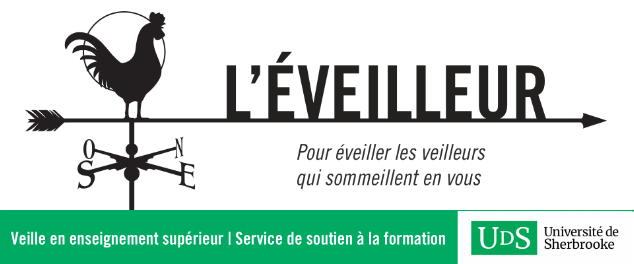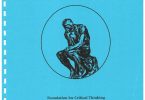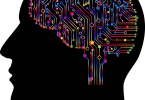Tiré du blogue du Project New Media Literacies de l’Anenberg School of Journalism de la University of Southern California. Le groupe est dirigé par Henry Jenkins dont j’ai parlé à plusieurs occasions :
The New Media Literacies constitute the core cultural competencies and social skills that young people need in our new media landscape. We call them “literacies,” but they change the focus of literacy from one of individual expression to one of community involvement. They build on the foundation of traditional literacy, research skills, technical skills, and critical analysis skills taught in the classroom. If these New Media Literacies are learned – and they can be learned without computers in the classroom – they can form the building blocks for students’ participation in new media.
Le groupe a fait paraître un livre blanc exposant ses conclusions :
Henry Jenkins with Ravi Purushotma, Margaret Weigel, Katie Clinton, and Alice J. Robison, Confronting the Challenges of Participatory Culture: Media Education for the 21st Century (Cambridge: MIT Press, 2009).
En gros, Jenkins et son équipe en viennent à la conclusion qu’il ne faut plus simplement enseigner aux jeunes à examiner de manière critique l’information à laquelle ils accèdent, mais aussi celle qu’ils produisent eux-mêmes. Ils veulent aussi réorienter la réflexion au-delà de la problématique d’intégration des ordinateurs aux salles de classe. Le développement des habiletés ci-dessous ne requiert pas absolument des ordinateurs…
Les douze habiletés de la littéracie médiatique :
- PLAY – the capacity to experiment with one’s surroundings as a form of problem-solving
- PERFORMANCE– the ability to adopt alternative identities for the purpose of improvisation and discovery
- SIMULATION – the ability to interpret and construct dynamic models of real-world processes
- APPROPRIATION – the ability to meaningfully sample and remix media content
- MULTITASKING – the ability to scan one’s environment and shift focus as needed to salient details
- DISTRIBUTED COGNITION – the ability to interact meaningfully with tools that expand mental capacities
- COLLECTIVE INTELLIGENCE – the ability to pool knowledge and compare notes with others toward a common goal
- JUDGMENT – the ability to evaluate the reliability and credibility of different information sources
- TRANSMEDIA NAVIGATION – the ability to follow the flow of stories and information across multiple modalities
- NETWORKING – the ability to search for, synthesize, and disseminate information
- NEGOTIATION – the ability to travel across diverse communities, discerning and respecting multiple perspectives, and grasping and following alternative norms
- VISUALIZATION – the ability to interpret and create data representations for the purposes of expressing ideas, finding patterns, and identifying trend
(avec une jolie mise en page: http://newmedialiteracies.org/blog/2008/11/10/NMLskills.pdf)
Le groupe identifie aussi trois défis qui donnent à penser que les jeunes ne peuvent être laissés à eux-mêmes quant à ces apprentissages :
- The Participation Gap — the unequal access to the opportunities, experiences, skills, and knowledge that will prepare youth for full participation in the world of tomorrow.
- The Transparency Problem —The challenges young people face in learning to see clearly the ways that media shape perceptions of the world.
- The Ethics Challenge —The breakdown of traditional forms of professional training and socialization that might prepare young people for their increasingly public roles as media makers and community participants.
À réfléchir dans une réforme de tous les curriculums…






